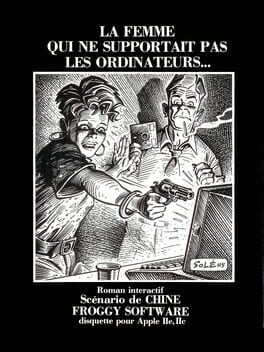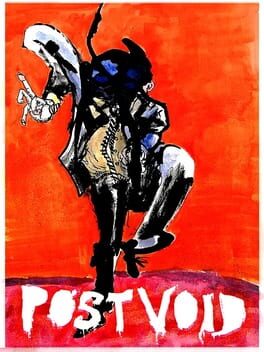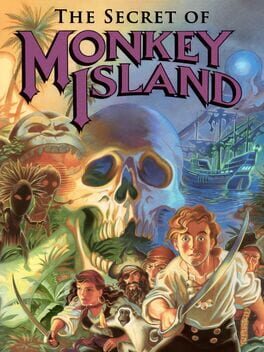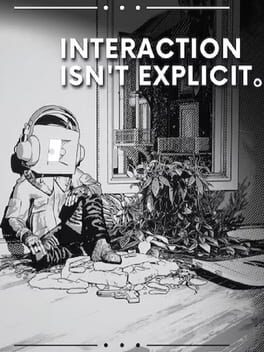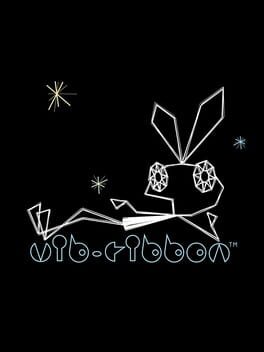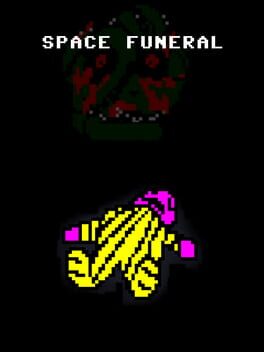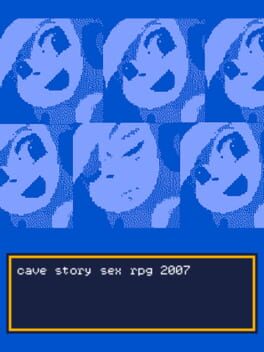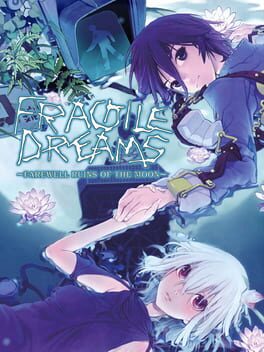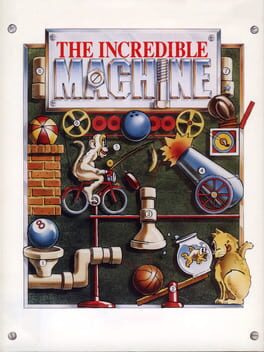Batt
2003
Ninth bar.
"My, my, my", you say as you take a sip from your 300$ cup of Dom Pérignon, "what a misstep from a professional violinist that is..."
Little did you know that only a couple of minutes later you will get blown off orbit by Alfred Schnittke, inevitably staining your way-too-expansive-for-the-average-joe-huh costume.
For a (broad) genre that is so commonly associated with elitism and bourgeoisie, using atonality in classical music has always been a hell of a thing as it directly challenges orthodox forms of Western music but also goes against the conservatism way of seeing everything under the veil of """beauty""".
Most of the droning conversations surrounding Drakengard are about its janky (to say the least) gameplay and whether or not this was Yoko Taro's intent (as if meaning slipping away from the artist's hands would undermine all artistic value).
There's little to no room for discussion about these ear-scorching violins, making a soundtrack exclusively out of unapologetically aggressive sound collages in a world of grand melodramatic orchestras and nice subtle ambient tracks is a hell of a feast from Nobuyoshi Sano and Takayuki Aihara.
Heck, I'd even argue that it doesn't even serve as a mere companion piece for Drakengard, this is as much of an incredible exploration of the cycle of violence as the whole design use of detachment from death games usually provide, and both the soundtrack and the core game are much more effective at doing so than most works wearing their "so subversive" title up their sleeves I've experienced yet.
I want more abrasive and nightmarish soundscapes to drown in, this is pure hell through and through, I am crying, I am curled up in a ball, I feel like shit, I am gasping for air, I need more.
"My, my, my", you say as you take a sip from your 300$ cup of Dom Pérignon, "what a misstep from a professional violinist that is..."
Little did you know that only a couple of minutes later you will get blown off orbit by Alfred Schnittke, inevitably staining your way-too-expansive-for-the-average-joe-huh costume.
For a (broad) genre that is so commonly associated with elitism and bourgeoisie, using atonality in classical music has always been a hell of a thing as it directly challenges orthodox forms of Western music but also goes against the conservatism way of seeing everything under the veil of """beauty""".
Most of the droning conversations surrounding Drakengard are about its janky (to say the least) gameplay and whether or not this was Yoko Taro's intent (as if meaning slipping away from the artist's hands would undermine all artistic value).
There's little to no room for discussion about these ear-scorching violins, making a soundtrack exclusively out of unapologetically aggressive sound collages in a world of grand melodramatic orchestras and nice subtle ambient tracks is a hell of a feast from Nobuyoshi Sano and Takayuki Aihara.
Heck, I'd even argue that it doesn't even serve as a mere companion piece for Drakengard, this is as much of an incredible exploration of the cycle of violence as the whole design use of detachment from death games usually provide, and both the soundtrack and the core game are much more effective at doing so than most works wearing their "so subversive" title up their sleeves I've experienced yet.
I want more abrasive and nightmarish soundscapes to drown in, this is pure hell through and through, I am crying, I am curled up in a ball, I feel like shit, I am gasping for air, I need more.
It's definitely surprising to see a piece of feminist interactive fiction in an age where video games were barely a thing, especially those written by women (although the genre did get into more political matters), and even more so one that provides a twist on the genre : leaving the room only for polar questions instead of more complex answers.
The deeply detached and uninterested mentality you're put into, of course, doesn't stop the harassment from getting far worse and devolving into incessant sexualization and objectification despite all.
To think La femme qui ne supportait pas less ordinateurs, released in 1986, would not only still hold up to this day, but also ring true more than ever is a shame, really.
The deeply detached and uninterested mentality you're put into, of course, doesn't stop the harassment from getting far worse and devolving into incessant sexualization and objectification despite all.
To think La femme qui ne supportait pas less ordinateurs, released in 1986, would not only still hold up to this day, but also ring true more than ever is a shame, really.
2020
I just couldn't get over it, the incredibly tense finale of The Beast Within haunted my 8-year-old self for weeks (and still does to this day), what could possibly replicate such a mystery ? What could even come close to the feeling of accomplishment after finding the answer to such twisted puzzles ?
This was way too much dopamine than my brain could handle at the time, so of course after being told that, not only did such a game exist, but it also is one full of PIRATES and ADVENTURE (!!!), the right thing to do was to boot it up and drop it almost immediately after.
It all made sense, pirates have been romanticized to death : they're brave, adventurous, out-there people with their paraphernalia of swords, parrots, wood legs and hooks, surprisingly warm figures for the imagination, and an illusion that Guy Threepwood seems to be the last one to still believe in.
It's a deeply charming game that time, somehow, hasn't even been able to approach, let alone touch.
Every. Damn. Line. Works to a point it's pretty much unbelievable, it's already a feat to write comedic dialogue that always sticks the landing, but still managing to hit at full intensity over 30 years later is the stuff of legendary writing.
It took me a whole decade of my life to travel back and forth from Monkey Island, but the feeling of closure these fireworks brought might, in fact, be an even more incredible experience than getting out of the final labyrinth that haunted a child's mind.
This was way too much dopamine than my brain could handle at the time, so of course after being told that, not only did such a game exist, but it also is one full of PIRATES and ADVENTURE (!!!), the right thing to do was to boot it up and drop it almost immediately after.
It all made sense, pirates have been romanticized to death : they're brave, adventurous, out-there people with their paraphernalia of swords, parrots, wood legs and hooks, surprisingly warm figures for the imagination, and an illusion that Guy Threepwood seems to be the last one to still believe in.
It's a deeply charming game that time, somehow, hasn't even been able to approach, let alone touch.
Every. Damn. Line. Works to a point it's pretty much unbelievable, it's already a feat to write comedic dialogue that always sticks the landing, but still managing to hit at full intensity over 30 years later is the stuff of legendary writing.
It took me a whole decade of my life to travel back and forth from Monkey Island, but the feeling of closure these fireworks brought might, in fact, be an even more incredible experience than getting out of the final labyrinth that haunted a child's mind.
My eyes are way too weary and my consciousness has drifted far too apart for me to care about my brain repressing the oh-so-famous embarrassing memories of my life.
As the images get exponentially faster, there's one that pops up every 6 months or so to crush any bit of effort I put into sleeping : my thirteen-year-old ass watching Touhou videos for hours because "it's pretty".
This is a checkmate to my younger self, and more importantly, an apology to all Touhou players for putting this away for so long.
I want to lose myself in waves upon waves of colors, let my mind bend at blossoms of bullets and stare for hours at the thousands of lights dancing toward me.
This is not just "pretty" and hypnotic, this is beyond beautiful.
As the images get exponentially faster, there's one that pops up every 6 months or so to crush any bit of effort I put into sleeping : my thirteen-year-old ass watching Touhou videos for hours because "it's pretty".
This is a checkmate to my younger self, and more importantly, an apology to all Touhou players for putting this away for so long.
I want to lose myself in waves upon waves of colors, let my mind bend at blossoms of bullets and stare for hours at the thousands of lights dancing toward me.
This is not just "pretty" and hypnotic, this is beyond beautiful.
2022
There are various forms of death to be found in Who's Lila?
Physical death ?
Ego death ?
Author's death ?
The facial deformation mechanic might be underused from a gameplay perspective, however, it's absolutely not from a symbolic one, Who's Lila? is without a doubt one of the most focused games out there thematically speaking.
A game somewhat about social anxiety, probably about the free form of self, and, of course, about a dead girl wrapped in plastic.
Physical death ?
Ego death ?
Author's death ?
The facial deformation mechanic might be underused from a gameplay perspective, however, it's absolutely not from a symbolic one, Who's Lila? is without a doubt one of the most focused games out there thematically speaking.
A game somewhat about social anxiety, probably about the free form of self, and, of course, about a dead girl wrapped in plastic.
Mild "spoilers" ahead.
There's a cruel lack of understanding of context and relations between mechanics here, mimicking the mechanics of some surface-level namedrop not only never reinforces any point it's trying to make, but also ends up creating completely disjointed gameplay, that's a pretty strong contradiction.
Game design is supposed to shape an experience based on how different mechanics answer each other, it's always been a matter of context and good use of its elements, the assertion that any kind of HUD or linear level design fundamentally conflicts with any sort of emotional implication is a seriously flawed argument.
If anything, the final claim about how "Shadow of the Colossus is the greatest game of all time" (objectivity in any art-related writing is pretty eliminatory) without ever mentioning the game beforehand, even as an example, shows that this essay/study comes from the place of someone having just discovered what subtractive design is and who holds it as some sort of golden standard, if it certainly encompasses interactive storytelling, I can only hope the impact it had on the writer's view of narration will lead them to realize how expandable it is instead of restrictive.
There's a cruel lack of understanding of context and relations between mechanics here, mimicking the mechanics of some surface-level namedrop not only never reinforces any point it's trying to make, but also ends up creating completely disjointed gameplay, that's a pretty strong contradiction.
Game design is supposed to shape an experience based on how different mechanics answer each other, it's always been a matter of context and good use of its elements, the assertion that any kind of HUD or linear level design fundamentally conflicts with any sort of emotional implication is a seriously flawed argument.
If anything, the final claim about how "Shadow of the Colossus is the greatest game of all time" (objectivity in any art-related writing is pretty eliminatory) without ever mentioning the game beforehand, even as an example, shows that this essay/study comes from the place of someone having just discovered what subtractive design is and who holds it as some sort of golden standard, if it certainly encompasses interactive storytelling, I can only hope the impact it had on the writer's view of narration will lead them to realize how expandable it is instead of restrictive.
1999
Hydrogen tanks or battery packs at will, C-pillars, 390 liters of cargo capacity, over five different four-cylinder engines available, 72 different sitting variations, and the pièce de résistance : the "sandwich structure", an inclined cabin floor that made the whole thing roomier and the car shorter than its competitors while providing more safety in the case of an accident.
The brand-new Mercedes-Benz A-Class W168 (first generation) only needed top-notch advertisement to go along with, and who else than Masaya Matsuura, game designer, but most importantly key member of Japanese quirky New Wave and Synthpop band PsyS was more suited to provide some ?
They had everything, from technological innovation to a racing/rhythm game from the game designer of PaRappa the Rapper, what could possibly go wrong ?
Uh...
It can't turn.
That car sucked so bad when it came to emergency maneuver NanaOn-Sha simply aborted the project and would go on turning it into Vib-Ribbon, a surreal rhythm game that unsurprisingly fits much more Masaya Matsuura's usual style, and was the bad press worth it.
Now, what might struck you at first when launching Vib-Ribbon is probably gonna be the minimalistic art direction, not only is it reminiscent of early (and most often for scientific purposes) computer graphics and provides great readability, but it also allows the game to be loaded entirely from the PlayStation's RAM, while such experimentations weren't anything new (see : the famous Banjo Tooie Stop n' Swop ), succeeding in them was much more of a rare thing,
By swapping the game disc with another music CD, the game will generate a whole stage based on the selected track.
How does it work ? Pretty easy, an obstacle is randomly generated whenever the track hits a pronounced frequency (note that this does not exclusively refer to either the drums or bass, as separating these frequencies was already a hard task for a game that had to fit in so little space, but it would also lead to very "bland" levels), which means you can play either your favorite songs or the most batshit insane stuff you could think of, making lots of rhythm games enjoyers' dream reality !
And it also works well with an emulator by simply turning your mp3 file into an iso one before switching between them, I tried it out with Ground Zero Revolutionary Pekinese Opera and Eliane Radigue's Trilogie de la Mort just to experience the full spectrum !
(I mean, there's even a video of Death Grips' Get Got, anything is possible).
Vib-Ribbon did not sell well at its release, but, unsurprisingly, quickly gained a cult following outside of Japan after it came out digitally for the PS3. Yeah, it might not have a lot going on outside of its fun gimmick, but come on, you can't tell me you're not even curious about it, at the very least for how adorable Vibri is.
The brand-new Mercedes-Benz A-Class W168 (first generation) only needed top-notch advertisement to go along with, and who else than Masaya Matsuura, game designer, but most importantly key member of Japanese quirky New Wave and Synthpop band PsyS was more suited to provide some ?
They had everything, from technological innovation to a racing/rhythm game from the game designer of PaRappa the Rapper, what could possibly go wrong ?
Uh...
It can't turn.
That car sucked so bad when it came to emergency maneuver NanaOn-Sha simply aborted the project and would go on turning it into Vib-Ribbon, a surreal rhythm game that unsurprisingly fits much more Masaya Matsuura's usual style, and was the bad press worth it.
Now, what might struck you at first when launching Vib-Ribbon is probably gonna be the minimalistic art direction, not only is it reminiscent of early (and most often for scientific purposes) computer graphics and provides great readability, but it also allows the game to be loaded entirely from the PlayStation's RAM, while such experimentations weren't anything new (see : the famous Banjo Tooie Stop n' Swop ), succeeding in them was much more of a rare thing,
By swapping the game disc with another music CD, the game will generate a whole stage based on the selected track.
How does it work ? Pretty easy, an obstacle is randomly generated whenever the track hits a pronounced frequency (note that this does not exclusively refer to either the drums or bass, as separating these frequencies was already a hard task for a game that had to fit in so little space, but it would also lead to very "bland" levels), which means you can play either your favorite songs or the most batshit insane stuff you could think of, making lots of rhythm games enjoyers' dream reality !
And it also works well with an emulator by simply turning your mp3 file into an iso one before switching between them, I tried it out with Ground Zero Revolutionary Pekinese Opera and Eliane Radigue's Trilogie de la Mort just to experience the full spectrum !
(I mean, there's even a video of Death Grips' Get Got, anything is possible).
Vib-Ribbon did not sell well at its release, but, unsurprisingly, quickly gained a cult following outside of Japan after it came out digitally for the PS3. Yeah, it might not have a lot going on outside of its fun gimmick, but come on, you can't tell me you're not even curious about it, at the very least for how adorable Vibri is.
2011
Every year since 2013, a French charitable event called "Desert Bus de l'espoir" (Desert Bus of hope) is held in order to receive donations for the Petit Prince association that finances dreams of children suffering from terminal illness. In 2022, over 70 609€ were collected.
While it would be easy to make fun of the "haha bus bad" game without taking into consideration the story behind its existence, I just really wanted to point out how something originally made as a piece of satire and novelty against the assumption that video games were too violent turned into such a symbol of support and empathy.
While it would be easy to make fun of the "haha bus bad" game without taking into consideration the story behind its existence, I just really wanted to point out how something originally made as a piece of satire and novelty against the assumption that video games were too violent turned into such a symbol of support and empathy.
2010
If you lived in the late seventies and were well-versed in the underground rock scene at the time, chances are you might have been to a Rallizes Dénudés concert, there is an undeniable catharism in letting these slow and hypnotic ballads take you away as they turn into nightmarish, ear-scorching walls of sound.
Chances are even higher that you called them absolutely batshit insane.
It's no surprise that a game so unapologetically repulsive as Space Funeral uses Rallizes Dénudés songs in its soundtrack, it's a product of the early 2010s random and gross memes era, you don't even have to look further than its mix of primary colors that bleeds your eyes out to come to this conclusion.
But if you do look further, you might enter a house within another house just to find a beheaded corpse that says "help me".
You might find a Mohai statue that looks at you dead in the eye speaking the wise word : "Doom."
You might even meet Dracula himself !
Space Funeral embraces originality and "imperfection" over games that play it safely made out exclusively of bland RPG Maker default assets, it's a proud standard of the "Art should comfort the disturbed and disturb the comfortable" motto.
And I call that bloody brilliant.
Chances are even higher that you called them absolutely batshit insane.
It's no surprise that a game so unapologetically repulsive as Space Funeral uses Rallizes Dénudés songs in its soundtrack, it's a product of the early 2010s random and gross memes era, you don't even have to look further than its mix of primary colors that bleeds your eyes out to come to this conclusion.
But if you do look further, you might enter a house within another house just to find a beheaded corpse that says "help me".
You might find a Mohai statue that looks at you dead in the eye speaking the wise word : "Doom."
You might even meet Dracula himself !
Space Funeral embraces originality and "imperfection" over games that play it safely made out exclusively of bland RPG Maker default assets, it's a proud standard of the "Art should comfort the disturbed and disturb the comfortable" motto.
And I call that bloody brilliant.
Among the various consequences of late consumerism, there's that pretty incoherent thing that brought us all here which is "rating" art, it has its ups and downs on every moral aspect you could think of, but I think it's safe to assume that if you're on this website, you enjoy doing this to some degree.
There are movies I watched and albums I listened to that are so personal to their respective artist that bringing yourself to review them would actually feel incredibly disrespectful, and Cave Story Sex RPG 2007 is one of them.
Criticizing elements of someone's memories for the sake of it, or acting like a literal diary should resonate with you is contradicting and wrong on so many levels.
Would you ever read your little sister's diary just to tell her the writing fucking SUCKS and give it a light 1.5 ?
I'm not saying a piece of art like that cannot leave any impression on its audience (heck, it's not even supposed to have such a thing) and I'm glad video games allow people to express themselves in such direct ways but some experiences are better left wordless.
There are movies I watched and albums I listened to that are so personal to their respective artist that bringing yourself to review them would actually feel incredibly disrespectful, and Cave Story Sex RPG 2007 is one of them.
Criticizing elements of someone's memories for the sake of it, or acting like a literal diary should resonate with you is contradicting and wrong on so many levels.
Would you ever read your little sister's diary just to tell her the writing fucking SUCKS and give it a light 1.5 ?
I'm not saying a piece of art like that cannot leave any impression on its audience (heck, it's not even supposed to have such a thing) and I'm glad video games allow people to express themselves in such direct ways but some experiences are better left wordless.
2013
You know, for a franchise that always portrayed itself as much bolder than it actually is, I believe Bioshock Infinite perfectly checks that box for once.
And not in a good way at all.
Moving on from objectivism and individualism to American exceptionalism and religious dogma could have been a great idea by itself, exploring less abstract political topics. As some gamers tend to forget that all art is, explicitly or not, political, a more on-the-nose reminder that confronts the deeply rooted racism in its ideology sounds just right.
"Wait, confronting racism ? Nah, that goes in the way of characterization, let's just put it as a period landmark in the background".
The aestheticization of racism and its use as a set piece should be revolting enough for anyone to put down the game from a purely thematic standpoint, but Bioshock Infinite somehow manages to dig even deeper into its own grave by daring to adopt a relativist approach to such topics : "sure, racism and slavery are bad, but confronting the problem with violence is even worse".
Antagonizing SOCIAL REVOLT in a DYSTOPIAN AMERICAN EXCEPTIONALIST WORLD is so morally wrong in every aspect, I could leave the benefit of the doubt and see that as clumsy writing, but I just can't believe someone wrote that without believing at least a little in the politics of the city they created.
How. Fucking. Disgusting.
And not in a good way at all.
Moving on from objectivism and individualism to American exceptionalism and religious dogma could have been a great idea by itself, exploring less abstract political topics. As some gamers tend to forget that all art is, explicitly or not, political, a more on-the-nose reminder that confronts the deeply rooted racism in its ideology sounds just right.
"Wait, confronting racism ? Nah, that goes in the way of characterization, let's just put it as a period landmark in the background".
The aestheticization of racism and its use as a set piece should be revolting enough for anyone to put down the game from a purely thematic standpoint, but Bioshock Infinite somehow manages to dig even deeper into its own grave by daring to adopt a relativist approach to such topics : "sure, racism and slavery are bad, but confronting the problem with violence is even worse".
Antagonizing SOCIAL REVOLT in a DYSTOPIAN AMERICAN EXCEPTIONALIST WORLD is so morally wrong in every aspect, I could leave the benefit of the doubt and see that as clumsy writing, but I just can't believe someone wrote that without believing at least a little in the politics of the city they created.
How. Fucking. Disgusting.
The idea of a David Lynch typing game is simultaneously the least and the most David Lynch thing to exist, which is made even better knowing the game designer's last name is actually Palmer.
Cook yourself some quinoa, grab a cup of damn fine coffee and sit comfortably in your chair because you're in for something that's definitely not your usual typing game.
Or is it really ?
See, my main grip with such a fun little gimmick is that it isn't really a twisted typing game but rather an extremely passive experience, typing doesn't really have a lot to do in this, and ends up being more of an excuse to trigger Inland Empire-inspired cutscenes by simply holding A.
The perfect imitation of David Lynch that appears on the screen doesn't ask me to do anything special with my keyboard outside of a very well-thought-of moment that perfectly encapsulates what I would have liked to find in this short experience.
Who would have thought I would complain about something with David Lynch in its title being too conventional ?
Cook yourself some quinoa, grab a cup of damn fine coffee and sit comfortably in your chair because you're in for something that's definitely not your usual typing game.
Or is it really ?
See, my main grip with such a fun little gimmick is that it isn't really a twisted typing game but rather an extremely passive experience, typing doesn't really have a lot to do in this, and ends up being more of an excuse to trigger Inland Empire-inspired cutscenes by simply holding A.
The perfect imitation of David Lynch that appears on the screen doesn't ask me to do anything special with my keyboard outside of a very well-thought-of moment that perfectly encapsulates what I would have liked to find in this short experience.
Who would have thought I would complain about something with David Lynch in its title being too conventional ?
Grass blades moved by a slight breeze tickle your cheeks, flowers around you cry their morning dew.
The metal of a lonely street lamp gave way to an ivy spiral, its broken bulb by moonlight.
Fireflies are still around but not for long, a brighter bulb will soon rise up and replace the last one.
The grass you lie into gently bends with a cracking, the silence around has been so loud for so long that even the most insignificant noises become deafening.
But the breeze never reaches you.
Where did this noise come from ?
Getting up in a panic, wondering what kind of wild boar could-
It grabbed your shoulders.
Firmly.
With two hands.
How ?
Didn't Grandpa die last week ?
You'd like to turn around, trading your fear to see that person's face, to know the comfort of there being anyone.
But you can't. The hands won't let you.
Something tickles your earlobes, it's a mouth you can't see, it whispers solemnly :
"Hey guys, I'm Kentarō Kawashima, are you ready to experience among the most unsubtle writing ever put to games ?"
I am a sucker for desolate and post-apocalyptic melancholia, quiet tales of loneliness in empty landscapes void of any danger, any other human being, nothing but wait.
In that sense, Fragile Dreams: Farewell Ruins of the Moon succeeds quite well at giving off an extremely tangible atmosphere, one barely ever seen in Wii games, one that gets utterly destroyed at every turn.
The writing in this is even more obnoxious than that review's preface, and that says something, drenched in an urge for exaggerated melodrama that can't ever feel like a payoff since there's barely anything previously built onto.
How are we supposed to fill in the blanks ourselves when characters always have to tell their feelings explicitly ? How am I supposed to care for the death of a character I met an hour ago that was built entirely out of expository dialogues ?
It's a writing that doesn't believe in its players and therefore lacks any kind of subtext. It takes so much unnecessary place in what seems to be designed as a contemplative game it simply brings everything down.
seems ?
Fragile Dreams tries to blend Action RPG elements with Silent Hill-esque level design, which, well, completely dismisses both as they are fundamentally opposed, and the game doesn't really manage to link them.
This leads to a complete dichotomy in substance and it never feels at least decent to play, not even once the game justifies this approach with any kind of creative moment, it's an actual chore.
Yet, it's completely impossible not to be charmed and transported by the bittersweetness of its world and perpetual sense of longing for human connection.
Fragile Dreams will probably stay as one of my biggest "what if ?" in my gaming experience, but it will also forever feel like a lost reflection.
The metal of a lonely street lamp gave way to an ivy spiral, its broken bulb by moonlight.
Fireflies are still around but not for long, a brighter bulb will soon rise up and replace the last one.
The grass you lie into gently bends with a cracking, the silence around has been so loud for so long that even the most insignificant noises become deafening.
But the breeze never reaches you.
Where did this noise come from ?
Getting up in a panic, wondering what kind of wild boar could-
It grabbed your shoulders.
Firmly.
With two hands.
How ?
Didn't Grandpa die last week ?
You'd like to turn around, trading your fear to see that person's face, to know the comfort of there being anyone.
But you can't. The hands won't let you.
Something tickles your earlobes, it's a mouth you can't see, it whispers solemnly :
"Hey guys, I'm Kentarō Kawashima, are you ready to experience among the most unsubtle writing ever put to games ?"
I am a sucker for desolate and post-apocalyptic melancholia, quiet tales of loneliness in empty landscapes void of any danger, any other human being, nothing but wait.
In that sense, Fragile Dreams: Farewell Ruins of the Moon succeeds quite well at giving off an extremely tangible atmosphere, one barely ever seen in Wii games, one that gets utterly destroyed at every turn.
The writing in this is even more obnoxious than that review's preface, and that says something, drenched in an urge for exaggerated melodrama that can't ever feel like a payoff since there's barely anything previously built onto.
How are we supposed to fill in the blanks ourselves when characters always have to tell their feelings explicitly ? How am I supposed to care for the death of a character I met an hour ago that was built entirely out of expository dialogues ?
It's a writing that doesn't believe in its players and therefore lacks any kind of subtext. It takes so much unnecessary place in what seems to be designed as a contemplative game it simply brings everything down.
seems ?
Fragile Dreams tries to blend Action RPG elements with Silent Hill-esque level design, which, well, completely dismisses both as they are fundamentally opposed, and the game doesn't really manage to link them.
This leads to a complete dichotomy in substance and it never feels at least decent to play, not even once the game justifies this approach with any kind of creative moment, it's an actual chore.
Yet, it's completely impossible not to be charmed and transported by the bittersweetness of its world and perpetual sense of longing for human connection.
Fragile Dreams will probably stay as one of my biggest "what if ?" in my gaming experience, but it will also forever feel like a lost reflection.
Alright, let's see how it goes.
The candle falls down on the trampoline just to hit the hamster wheel that's connected to the conveyor belt next to it, now if it keeps the momentum juuuuuust right it might be able to get to the hamster wheel at the end of the platfo- oh yeah that's nice it's falling down on the other conveyer belt that's connected to set of gears, it's jumpingonthetrampolinenexttoitHOLYSHITIT'SGONNATOUCHTHEFIVEBALLOONSCOMEONCOMEONCOMEONCOMEONLET'SGOOOOOOOOO!!!!!
This is your usual The Incredible Machine puzzle.
Aren't Rube Goldberg machines fun ?
The ridiculously and overly complex system to perform a simple task has always been both a form of comic relief as well as a strangely captivating and addictive device.
Puzzle games almost entirely rely on an eureka effect, an example of clever game design and level design (assuming the said puzzle is based on an original mechanic) would usually be to keep the answer straightforward and easy to understand while simultaneously making the player scratch their head, it has to be complex, not complicated.
Why are you solving this puzzle ? To get to experience that eureka effect, the carrot and the stick, you know.
Not only does The Incredible Machine manage to succeed in all of the above, it also goes even further by making the actual problem-solving incredibly fun. It does not restrain in order to deliver a bigger dopamine shot, it builds up to it.
Whereas physics puzzles often leave room for experimentation, here, it is ABOUT experimentation, even though your machine might not actually get you to the answer, the simple fact of piecing it up little by little and testing is entertainment by itself, and is something the lead developer Kevin Ryan was very aware of by adding a free mode just to build things without any goal in mind.
Looking down at some YouTube comments, it's a game that seems to have been an important part of 90s kids' childhood (for quite obvious reasons) and is also one that amazed me the very same way over two decades later, now if that's not incredible.
The candle falls down on the trampoline just to hit the hamster wheel that's connected to the conveyor belt next to it, now if it keeps the momentum juuuuuust right it might be able to get to the hamster wheel at the end of the platfo- oh yeah that's nice it's falling down on the other conveyer belt that's connected to set of gears, it's jumpingonthetrampolinenexttoitHOLYSHITIT'SGONNATOUCHTHEFIVEBALLOONSCOMEONCOMEONCOMEONCOMEONLET'SGOOOOOOOOO!!!!!
This is your usual The Incredible Machine puzzle.
Aren't Rube Goldberg machines fun ?
The ridiculously and overly complex system to perform a simple task has always been both a form of comic relief as well as a strangely captivating and addictive device.
Puzzle games almost entirely rely on an eureka effect, an example of clever game design and level design (assuming the said puzzle is based on an original mechanic) would usually be to keep the answer straightforward and easy to understand while simultaneously making the player scratch their head, it has to be complex, not complicated.
Why are you solving this puzzle ? To get to experience that eureka effect, the carrot and the stick, you know.
Not only does The Incredible Machine manage to succeed in all of the above, it also goes even further by making the actual problem-solving incredibly fun. It does not restrain in order to deliver a bigger dopamine shot, it builds up to it.
Whereas physics puzzles often leave room for experimentation, here, it is ABOUT experimentation, even though your machine might not actually get you to the answer, the simple fact of piecing it up little by little and testing is entertainment by itself, and is something the lead developer Kevin Ryan was very aware of by adding a free mode just to build things without any goal in mind.
Looking down at some YouTube comments, it's a game that seems to have been an important part of 90s kids' childhood (for quite obvious reasons) and is also one that amazed me the very same way over two decades later, now if that's not incredible.

